READER COMMENTS ON
"HBO to Premier 'Hacking Democracy' Just Prior to November Election!"
(43 Responses so far...)
COMMENT #1 [Permalink]
...
big dan
said on 10/11/2006 @ 7:20 am PT...
This is EXACTLY what's needed. Thank you.
COMMENT #2 [Permalink]
...
DONNA
said on 10/11/2006 @ 7:39 am PT...
I'm thrilled over HBO doing this, it's about time someone did ! However concerning time, it took 3 years to put it together WHY SHOW IT 5 DAYS BEFORE THE ELECTION ? Nov 2nd ? How about July 2nd or even Aug ? Give people some time to react, and maybe even DO something about it ! Due to their timing it's "too little, too late" for 06 !
COMMENT #3 [Permalink]
...
gtash
said on 10/11/2006 @ 7:43 am PT...
I hope the HBO documentary has the effect of catching attention like Michael Moore's film did some years ago. Now if they could just arrange to play to the two back-to-back and top it off with 9-11 Press for Truth!
COMMENT #4 [Permalink]
...
MarkH
said on 10/11/2006 @ 7:47 am PT...
Really, why show it so late?
COMMENT #5 [Permalink]
...
Grizzly Bear Dancer
said on 10/11/2006 @ 7:57 am PT...
They should run the trailer before showing Robin William's new movie "Man of the Year" in the theaters. Also agree with previous posts questioning why this movie isn't out informing ALL AMERICANS tonight!!!
COMMENT #6 [Permalink]
...
Chris Hooten
said on 10/11/2006 @ 8:04 am PT...
Damn, I just lost HBO this month, because it is no longer offered as an analog station, and requires a digital cable box now, that would make the cable bill nearly twice as much for 3 TV's (Time Warner). Not that anyone cares...
I am glad that the person that was doing this project has finally gotten a mainstream outlet for his important film. I'm also glad he decided to call the film "Hacking Democracy," and not what he was leaning towards calling it, which was a bad pun that I can't remember now. He asked which title we preferred at the San Diego Emergency town hall meeting in Oceanside a few months ago. Almost everyone liked "Hacking democracy," which was a much more straightforward title. Did they really have to wait until Nov 2nd to release it, though? Sheesh. They just have to deny everything in it for 5 days, until the election is "over." "Over," of course being a relative term as there will be innumerous challenges to electoral results due to unanticipated "surprise" winners, and massive machine malfunctions.
And you know, I just got called a "conspiracy theorist" yesterday in jest. lets see how funny they think it is on election day, when the ensuing electronic voting train wreck we all know about will happen.
COMMENT #7 [Permalink]
...
Arry
said on 10/11/2006 @ 8:16 am PT...
It might not be all bad that it is coming out now (rather than earlier). We need everything we can get --- and should do everything we can do --- to make the nature of the election clear right now at the time of the election when it cannot fail to get people's attention.
That necessity includes massive turnout voting for Democratic candidates to make theft as difficult as possible, detailed observation of what happens on election day, rapid analysis of results, and media works, such as this film to hammer in the truth.
I'm not saying that electronic election fraud should not have been dealt with a long time ago. I'm saying that regardless of the difficulty of getting the word out previously, the election is now and it is time to make the issue clear to massive numbers of people who have been living in a fools paradise.
COMMENT #8 [Permalink]
...
Bluebear2
said on 10/11/2006 @ 8:18 am PT...
Grizzly #5 said:
"They should run the trailer before showing Robin William's new movie "Man of the Year""
Excellent Idea - and sandwiched between all the political commercials on Network TV!
COMMENT #9 [Permalink]
...
Bluebear2
said on 10/11/2006 @ 8:21 am PT...
Arry #7
I saw a poll the other day which said less than 44% of the rebugs plan on voting.
The Dems need to get out 88%!
COMMENT #10 [Permalink]
...
patginsd
said on 10/11/2006 @ 8:22 am PT...
As everyone says, WHY just before the election?
It may just cause our voters to give up and not vote!
In the long run, this is just what we need, as well as all the other coverage that's been happening on Lou Dobbs.
But why Nov 2? Woe is me.
Hey, Brad, should we still be pushing for the emergency paper ballots for Nov, or is it now a lost cause?
Thanks
COMMENT #11 [Permalink]
...
LauriC
said on 10/11/2006 @ 9:14 am PT...
So glad to hear that they changed the name from "Votergate" to "Hacking Democracy". Everytime vote fraud is brought up, the repugs end up changing it from issues with the electronic voting machines to VOTER fraud - as in the issue being that people who don't have a right to vote are able to cast their votes instead of the true issue where the votes are not really counted.
COMMENT #12 [Permalink]
...
DONNA
said on 10/11/2006 @ 9:14 am PT...
# 10 As bummed out as I am over the timing, I WILL CRAWL if necessary to vote Nov 7th ! Maybe exit polls will be so outlandishly off finally they may matter.
COMMENT #13 [Permalink]
...
Arry
said on 10/11/2006 @ 9:24 am PT...
I don't know --- maybe I hang around activists too much, but I find it difficult to fathom how specific knowledge of electronic fraud and the fact that it has occurred would cause people to say, "I give up" and hand it over to the crooks. Seems to me it would make them mad. That's what we want. Mad=activism, including, probably, going to the polls and saying, "OK, fraud that one, buddy" and being highly attuned to the "results"...and more likely to challenge them.
From my experience, most grassroots Democrats are fired up and you couldn't keep them away from the polls, and election fraud is a popular issue among them.
COMMENT #14 [Permalink]
...
Charlie L
said on 10/11/2006 @ 9:56 am PT...
We must vote in numbers too big to ignore.
MAKE them steal it so obviously that DieBold, ES&S, and Sequoia executives and Republican Election Officials can be charged, tried, and convicted of treason by "The People's Court" and their bodies strewn on The Barricades.
VOTE BIG! VOTE EARLY! Capture EVERYTHING on video or still and upload.
MAKE Democracy happen.
COMMENT #15 [Permalink]
...
Savantster
said on 10/11/2006 @ 10:00 am PT...
HBO? .. /sigh.. Oh well, guess I"ll have to see about getting a copy after it airs since I don't have HBO. Nov. 2nd??
This should have been pushed on NATIONAL TELEVISION (not that I think FOX would run it.. lol) last month with repeats every week, 3 times a week. They should have a radio version of it too, like the old story readings back in the day.
Being on HBO is great since it's probably one of the only places it could get time, but being a primium outlet vastly limits the audience, and being so close to the election drastically reduces the amount of pirated material that will be floating around, which is how "most" people will end up seeing it (I'd guess).
The producers should offer a FREE DOWNLOAD (still a limited audience, but bigger than HBO subscribers, I'd venture) starting (now is nice) as soon as possible. I mean, people watching it on HBO will still watch it on HBO, they have no reason not to. But the rest of us need to see this as well.
And, even if the info is "late in the game", it could be enough to piss off enough people after the election when the Pugs "keep both houses" and all the machines seem to have "a few glictches" to encourage taking to the streets. That guy who wrote "The J Curve" talked about how we're passive in the face of these issues, he called us "stable" despite the problems. I call us lazy and disinterested.. but that's just me.
TO THE STREETS! PAPER BALLOTS!
COMMENT #16 [Permalink]
...
Ram
said on 10/11/2006 @ 10:02 am PT...
COMMENT #17 [Permalink]
...
ElectionFraudBlog.com
said on 10/11/2006 @ 10:09 am PT...
I'm glad this is getting out, but realize it's just in time for the repubs to scream "election fraud!!!" when the dems win. All they need to do is rig a couple races in the dems favor, that they would have won anyway, to make the whole thing look illegitimate.
Perhaps I'm just paranoid, but they do seem to always accuse others of doing what they do.
COMMENT #18 [Permalink]
...
Grizzly Bear Dancer
said on 10/11/2006 @ 10:27 am PT...
#8 Bluebear2: Excellent idea putting it between a couple of TV finger pointing politico commercials ( which are usually deceptive in nature but successful in brainwashing the stupid American who refuses to investigate the issue at hand). Anything to wake the mindless mass of sleepwalking sheep into looking for answers in front of their face is a good thang.
COMMENT #19 [Permalink]
...
K Ols
said on 10/11/2006 @ 12:02 pm PT...
I think the effects of this film will be:
1. Many will stay away from the polls discouraged that their vote won't be counted properly anyway.
2. Anywhere the Dems win the Repugs will cry election fraud.
Another problem might be that this will get knocked out of program because of R complaints that it is being shown too close to the election.
Hope I'm wrong.
COMMENT #20 [Permalink]
...
Bev Harris
said on 10/11/2006 @ 12:22 pm PT...
I can answer the question on the timing.
There were certain people who did not want this movie to ever see the light of day. They nearly killed it. HBO had the courage to pull the baby out and rush it to air --- I'm quite sure the plan was to poison pill it to delay the film until after the election, when there would be less attention.
I don't know if the story behind the story will ever be told, because it's not mine to tell. But believe me, there are people that were trying to kill this thing, and failing that, they were trying to delay it, marginalize it, and certainly they were trying to strongarm the filmmakers into cutting some of the most powerful scenes out.
I know that Rolling Stone got attacked by the Diebold lawyers, and I think we cannot emphasize enough that HBO showed both patriotism and great courage in taking this project on.
Here's what I urge you to do: Have a House Party on Nov. 2. Watch the film. Pass out the Black Box Voting Citizen's Tool Kit modules for how to monitor the counting, how to audit an election, how to do public records requests.
You will find the Tool Kit in a red menu link on the right side of our home page.
This is the movie that Diebold and certain politicians have considered to be the most dangerous of all. I have seen it. And I'll tell you why they don't want it to be shown:
Because at last, it breaks down the complex issues of voting machines and hacking into a story, based on real-world characters like Ion Sancho. It is watchable. You don't feel like you're sitting through a lecture filled with talking heads, because so much of it was filmed out in the field.
Therefore, it will play a critical role in getting this nation to the tipping point on e-voting, because it will increase the size of the choir.
We can't keep preaching to the choir, and we have to recognize that most people get their information from TV, not from reading. The HBO show will bring the issue home to people who aren't already in the movement.
I have already read one reviewer refer to Robin Williams' new movie, which deals with a voting machine error that flips an election, as having "Wag the Dog" prescience. The HBO film puts unspinnable facts into the public, backing up the powerful on-screen drama in the Robin Williams film, for a one-two punch that will mobilize America as never before.
Capitalize on that.
Get newbie friends in to watch and then hand them the Tool Kit modules on how to go out and collect evidence.
Best,
Bev Harris
Founder, Black Box Voting
COMMENT #21 [Permalink]
...
Bev Harris
said on 10/11/2006 @ 12:26 pm PT...
Just to be clear: HBO has been behind this 100 percent from the moment they had the chance to get the film.
It is other entities that tried to block its completion.
COMMENT #22 [Permalink]
...
Patriot
said on 10/11/2006 @ 1:00 pm PT...
This is awesome news! Make sure everyone you know is going to vote. If the turnout is huge and the exit polls say we win (individual races) by 10% or more than the hacked outcomes show, maybe, just maybe the average American's anger will help him/her stiffen the spine enough so that they actually DO something --- like activists have in Mexico in the face of their recent stolen election.
The above statement assumes that dumbya will ALLOW an election to take place after they nuke Iran late this month. Beware the chimp with his recently passed Enabling Act ("Military Tribunal Act") that makes it legal for him to kidnap, torture, and murder anyone in the world (including Americans) for any reason he sees fit.
COMMENT #23 [Permalink]
...
Larry Bergan
said on 10/11/2006 @ 2:52 pm PT...
It's happening late, but it has happened.
Voting machine fraud awarness is HERE TO STAY!
To local and national election officials who knowingly or unknowingly brought these devious devices:
GOT BUYERS REMORSE YET?
COMMENT #24 [Permalink]
...
Larry Bergan
said on 10/11/2006 @ 2:56 pm PT...
To correct an error in the above post. No national election official can buy a voting machine. But they have been complicit.
COMMENT #25 [Permalink]
...
TruthIsAll
said on 10/11/2006 @ 3:13 pm PT...
Get Ready for Another Stolen Election
The Generic Polls showing a Democratic landslide assume a fraud-free election.
Will the GOP steal the election again?
Does Diebold switch votes?
Can there be any doubt?
The Repugs have stolen the last three elections.
It's the only way they can win.
Bush and Cheney are confident that they will retain the House and Senate.
Why?
They have the means: DREs are certified to be hacked.
They have the motive: Fear of Democratic investigations into 9/11, Iraq, torture, warrantless spying, the outing of Valerie Plame, etc….
They have the opportunity: The Dems who could have done something are still drinking DLC kool-aid.
As you can see from the chart, over the past year the Democrats have had a 10.6% average lead in the polls. They've won EVERY poll, except for ONE TIE. The lead has been increasing over the past year. The Democratic trendline has a positive slope while the Republican trend is flat.
But the latest Gallup poll has the Dems leading by 23%!
Here's the trend in Generic House of Representative Congressional polls over the past 12 months:
http://www.progressivein...um=120&topic_id=3213
COMMENT #26 [Permalink]
...
Nana
said on 10/11/2006 @ 5:34 pm PT...
Sorry, I can't get the above link to work?
I just cancelled my cable this morning, too expensive, and we need to read more. But this is incentive enough to turn it back on before Nov 2nd.
Thanks HBO
COMMENT #27 [Permalink]
...
TruthIsAll
said on 10/11/2006 @ 8:03 pm PT...
COMMENT #28 [Permalink]
...
Brad
said on 10/11/2006 @ 9:12 pm PT...
News on Emergency Paper Ballots coming tomorrow (whoever asked about it above...too tired to go back and check 
COMMENT #29 [Permalink]
...
Abbe Waldman Delozier
said on 10/11/2006 @ 9:58 pm PT...
The filmmakers have been thru hell the last 3 years trying to get this documentary out. It is a miracle this film is being shown on a mainstream cable venue like HBO. This is a HUGE breakthru for voting activists and America. Go to a friends house and watch it. Write HBO and thank them for having the courage to finally make vote fraud front page news. Much of mainstream America has very little knowledge that e-vote fraud exists. Now they will.As for the timing, to me I am extremely grateful that HBO has the guts to show this movie. When you have been working for election reform for years ANY time is a good time to let America know that we no longer have safe elections.Unfortunately the media will not cover election topics in the news unless it is election season. That is just how the media is. And the media has certainly not covered e-voting election fraud until Lou Dobbs, Brad Blog and others kept forcing the topic.This movie is going to blow peoples minds.This is going to rip the sheets off of the vendors-Diebold, ES&S etc Hopefully it will cause the outrage that this issue deserves. Thank Brad Blog and Bev Harris-go to www.blackboxvoting.org and download the "Citizens Toolkit" and take action! 97 pages of action items YOU can take to re-claim OUR elections.Abbe Delozier-www.hackedelections.com
COMMENT #30 [Permalink]
...
Vickie Karp
said on 10/11/2006 @ 10:35 pm PT...
I think this movie is the bombshell we've all been waiting for and the other side has been dreading. Let's see how the Repubs try to pin this one on Clinton and the Democrats! I'm getting HBO for November only and plan to have a house party November 2nd. Locally in Austin, VoteRescue is having a training on the Citizens' Toolkit, facilitated by none other than Kathleen Wynne, who has recently moved here. I'm planning on becoming a videographer and I intend to be at the Central Count office of my county on November 7th.
Three cheers for Russell and Rob, the moviemakers, for Bev and BBV, for Brad, Lou Dobbs, RFK Jr, etc. At last people don't look at me like I'm crazy when I tell them e-voting is stealing elections. Our troops should be much larger after November 2nd.
Vickie Karp
BBV and www.hackedelections.com
COMMENT #31 [Permalink]
...
Jody Holder
said on 10/11/2006 @ 11:52 pm PT...
Thank you Bev Harris for your much needed and appreciated comments, and your important suggestions.
Prior to the November release of the film to the general public there are actions people can take:
Go to blackboxvoting.org and download the toolkit, then join with fellow voting activists in your own county and put into action as many of the tools as possible.
Encourage your local party members, union leaders, and civic groups to watch the movie. It will be shown multiple times.
Inform your political representatives (especially your local county officials) that you will be watching and would welcome them seeing it to.
Organize house parties as Bev suggested.
I too hope the truth of what delayed the film's completion and release will someday soon be revealed. The producers made and completed this film at great personal sacrifice and I hope that is eventually given the credit due and justice will be served. In the meantime encourage as many to see the film as possible, and send a note to HBO thanking them for stepping forward and providing this national venue during prime time.
Finally, vote on November 7 and then be involved for the entire rest of the day and during the official canvass.
COMMENT #32 [Permalink]
...
Sheri Myers
said on 10/12/2006 @ 8:22 am PT...
Brad, Bev, Vickie, Rob, Russell, Bob, Paddy... the list goes on, of citizen heroes who sacrificed so much of their lives to bring the truth to light... I really hope you can take just one half of one minute to pat yourself on the back. This "Hacking Democracy" could not have happened without your tireless efforts. THANK YOU!! I will absolutely host a big house party on November 2, in Los Angeles, give them Bev's toolkit, sign them up to pollwork or pollwatch or video and damn it all, let's gather the evidence, slam the cheaters in jail and put an end to this sham.
COMMENT #33 [Permalink]
...
Badger
said on 10/12/2006 @ 9:46 am PT...
It is time citizens and media realized that the punch card morass created in the Florida 2000 election was primarily a distraction, that the core problem was in the optical scan systems as the 16,022 vote error revealed. What is not known is how often that memory card "error" may have occured and was not caught.
That it is possible the punch card fiasco not only covered up other potential optical scan "errors," but also "happened" to fascilitate the drive to all electronic voting. Take one disaster and get multiple uses out of it.
Why did Florida have problems with punch cards when other counties across the nation managed quite well with them and continued to do so until HAVA required their replacement?
Why did the officials who allowed the mess in Florida 2000 not suffer any consequences?
Correct the message: It's not Voter Fraud, it's ELECTION Fraud that is the problem.
Call for a full, independent investigation into the origins of The Election Center and how this non-federal organization came to hold so much power and judgement over electronic voting systems.
Contact all of your representatives and push for a paper ballot mandate for the 2006 elections and beyond.
You can use the upcoming airing of this movie as motivation.
Congress has a choice- they can either do nothing and by nonaction, be culpable; or they can be proactive and protect the citizens most precious right, the right to have their votes counted as cast with a paper verifiable, hand auditable, ballot of that vote.
Does congress believe that voting belongs to the citizens of this country, or not?
Here's something else to digest:
According to this study:
http://www.rules.senate....ngs/2001/031401knack.htm
Given in testimony before the Committee on Rules and Administration of the Senate, in 2001,
"5. Because we elect Presidents by the electoral vote and not the popular vote, it's also relevant to make these comparisons on a state-by-state basis. It turns out that in the majority of states where some counties use punch cards and others do not, whites, the non-poor and Republican voters who are more likely to reside in punch card counties than African Americans, the poor and Democratic voters. Unfortunately for Vice-President Gore, Florida happened to be one of the exceptions to this pattern."
"6. Public resources don't seem to matter much. Counties with punch card systems actually tend to have higher incomes, higher tax revenues, and larger populations than do counties with more modern voting equipment. In counties using electronic voting systems--the most expensive type--per capita incomes and property tax revenues are actually lower than in counties using punch card or any other voting technology. Florida is actually one of the best examples of these patterns: the largest and richest counties tend to use punch-card equipment. The Washington Post's claim of November 11 that it is "mainly affluent counties that have switched" to newer technology turns out to be dead wrong."
Is it possible that if a recount had occured in punch card-only counties in Florida, given the demographics, the outcome would have favored a Republican? And therefore, there was nothing to lose in that case if a recount had been allowed, in the punch card only counties?
Correct my logic if needed. This study would appear to support the kind of memory card hack found in recent tests, in just the demographics necessary.
COMMENT #34 [Permalink]
...
amlee
said on 10/12/2006 @ 3:55 pm PT...
Better late than never, I guess!
I can't wait to tape this and then lend it to everyone I know who doesn't have HBO. People really need to wake up to how dangerous these machines are to our already corrupt election process.
Bravo HBO!
COMMENT #35 [Permalink]
...
casey kochmer
said on 10/13/2006 @ 9:05 am PT...
At least its being shown to the greater public, but HBO is still limited in scope of access. Would be interesting to see if they release it to you tube or something online, That would be a real sign they are standing up for freedom!
COMMENT #36 [Permalink]
...
Dave
said on 10/13/2006 @ 2:11 pm PT...
"The stakes are high" -Bush 10/12
COMMENT #37 [Permalink]
...
Darlene Little
said on 10/16/2006 @ 10:17 pm PT...
THE FIX IS IN!! DO NOT DOUBT IT
{Ed Note: One message one thread, please. --99}
COMMENT #38 [Permalink]
...
Richard Danek
said on 11/3/2006 @ 5:13 am PT...
I didn't get to watch the entire program. Just bits and pieces with the intention of watching a replay on Sunday. However, while catching one, five minute segment - and then rewinding my DVR to make sure I really saw it - I noticed that part of the videotape of the software screen showed the word "Memroy" instead of "Memory". That made me think of one of two possibilities. Either the real Diebold software was so poorly quality controlled that such a spelling error was allowed to go out in a final product (questioning, in my mind, the overall software quality...sort of the point of the show), or the screen was a poorly done mockup by the show's producers...in which case, one might question the validity of the show if such mockups were not disclosed in the credits.
COMMENT #39 [Permalink]
...
Nathan
said on 11/3/2006 @ 10:26 am PT...
Where can I purchase a copy??
COMMENT #40 [Permalink]
...
amydemiceli
said on 11/3/2006 @ 12:47 pm PT...
"dumpster diving for america"
its great that this came out, and that this information is hitting the main stream.
lets not let this fizzle out!
its a sick system they created for us, and so many people dont care, we have to wake up.
we need more people like bev harris.
COMMENT #41 [Permalink]
...
Joy WIlliams
said on 11/5/2006 @ 2:26 am PT...
Bev, Thank you, from the bottom of my heart. I hope to talk to you soon, because this is a story of the CORE of what America is all about. And that is speaking truth to power.
This is a dicey and difficult story. You even try and challenge this stuff and you get attacked by agents provacateurs from the industries. What Bev, and Brad, and everyone else does is extremely courageous, in the face of extremely difficult adversaries. We owe a huge debt of gratitude to their courage and bravery, and just out and out chutzpa. I'm sorry if I can't name everyone, but some people are literally underground on this story, as we speak. But I'll tell you this, the groundwork of the new American Patriotism is laid in the Brad Blog, more than any OTHER blog in the world. And I'm not kidding about the WORLD, because we are a worldwide blog. The patriots are in this coordination, as loose as it is, to save this Democracy. I've never seen more dedicated people in my life. They put their lives on the line every day.
I salute all of you with the depth of my heart. You honor what we are all about. You are the democracy my forefathers wanted.
And I am proud to stand with you as another patriot who will do whatever she can to save this dream because without it, it's not worth living.
Joy
COMMENT #42 [Permalink]
...
Send $$$ to BRADBLOG - to STOP the FRAUD - oldturk
said on 11/7/2006 @ 3:12 pm PT...
COMMENT #43 [Permalink]
...
Steven
said on 11/8/2006 @ 8:33 am PT...
For everyone that understands that we have lost our vote should also watch "Can You Afford to Retire?" on PBS. It is showing all week on your PBS station or you can watch online here:
http://www.pbs.org/wgbh/...es/frontline/retirement/
Jefferson knew it way back When this all started!
Now you know too!
Thomas Jefferson wrote, "If the American people ever allow the banks to control the issuance of their currency, first by inflation and then by deflation, the banks and corporations that will grow up around them will deprive the people of all property, until their children will wake up homeless on the continent their fathers occupied."
http://iresist.com/cbg/fraud.html
All rights reserved,
Steven
 Think things have gotten bad for Diebold and friends? Something tells us they're about to get a whole lot worse.
Think things have gotten bad for Diebold and friends? Something tells us they're about to get a whole lot worse.

 Kamala Rising:
Kamala Rising: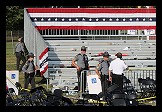 Evidence Fails to Establish Attempted Trump Assass-ination Politically Motivated
Evidence Fails to Establish Attempted Trump Assass-ination Politically Motivated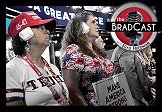 Former MAGA 'Cultist' on the State of the Race for 'MAGA Americans': 'BradCast' 7/23/24
Former MAGA 'Cultist' on the State of the Race for 'MAGA Americans': 'BradCast' 7/23/24  'Green News Report' 7/23/24
'Green News Report' 7/23/24
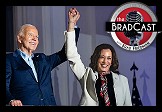 Biden Out, Endorses
Biden Out, Endorses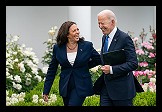 BIDEN DROPS REELECTION BID
BIDEN DROPS REELECTION BID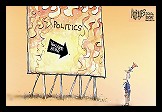 Sunday 'You Are Here' Toons
Sunday 'You Are Here' Toons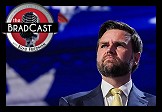 What J.D. Vance Forgot to Tell You (and Lied About) at the RNC: 'BradCast' 7/18/24
What J.D. Vance Forgot to Tell You (and Lied About) at the RNC: 'BradCast' 7/18/24 'Green News Report' 7/18/24
'Green News Report' 7/18/24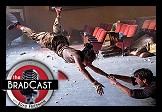 Holding on for Dear Life Amid the Political Whirlwind: 'BradCast' 7/17/24
Holding on for Dear Life Amid the Political Whirlwind: 'BradCast' 7/17/24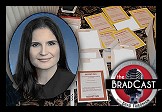 Cannon's Corruption: 'BradCast' 7/16/24
Cannon's Corruption: 'BradCast' 7/16/24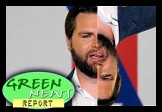 'Green News Report' 7/16/24
'Green News Report' 7/16/24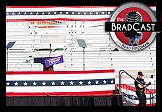 Amid the Assassination Attempt Aftermath:
Amid the Assassination Attempt Aftermath: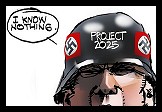
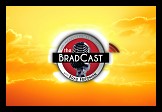 Meanwhile... : 'BradCast' 7/11/24
Meanwhile... : 'BradCast' 7/11/24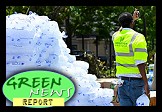 'Green News Report' 7/11/24
'Green News Report' 7/11/24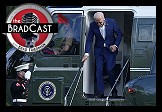 Paging 'Johnny Unbeatable'! Dems (Actually!) in Disarray!: 'BradCast' 7/10/24
Paging 'Johnny Unbeatable'! Dems (Actually!) in Disarray!: 'BradCast' 7/10/24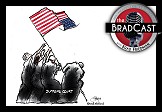 SCOTUS Immunity Ruling 'As Bad as it Sounds', And Worse: 'BradCast' 7/9/24
SCOTUS Immunity Ruling 'As Bad as it Sounds', And Worse: 'BradCast' 7/9/24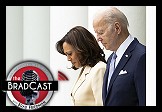 So, What Now?: 'BradCast' 7/8/24
So, What Now?: 'BradCast' 7/8/24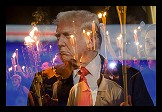 Debunking MAGA Cult Xenophobia
Debunking MAGA Cult Xenophobia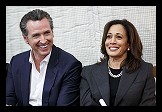 A Friendly Suggestion: Harris-Newsom 2024
A Friendly Suggestion: Harris-Newsom 2024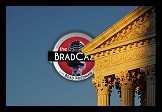 Prosecutor: SCOTUS Corruption Ruling Less Corrupt Than Appears: 'BradCast' 6/27/24
Prosecutor: SCOTUS Corruption Ruling Less Corrupt Than Appears: 'BradCast' 6/27/24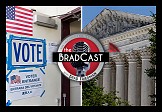 Good News and Bad: At the Polls and From the Corrupted Court: 'BradCast' 6/26/24
Good News and Bad: At the Polls and From the Corrupted Court: 'BradCast' 6/26/24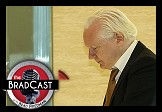 'Emptywheel' on Assange Hacking, Plea Deal: 'BradCast' 6/25/24
'Emptywheel' on Assange Hacking, Plea Deal: 'BradCast' 6/25/24
 VA GOP VOTER REG FRAUDSTER OFF HOOK
VA GOP VOTER REG FRAUDSTER OFF HOOK Criminal GOP Voter Registration Fraud Probe Expanding in VA
Criminal GOP Voter Registration Fraud Probe Expanding in VA DOJ PROBE SOUGHT AFTER VA ARREST
DOJ PROBE SOUGHT AFTER VA ARREST Arrest in VA: GOP Voter Reg Scandal Widens
Arrest in VA: GOP Voter Reg Scandal Widens ALL TOGETHER: ROVE, SPROUL, KOCHS, RNC
ALL TOGETHER: ROVE, SPROUL, KOCHS, RNC LATimes: RNC's 'Fired' Sproul Working for Repubs in 'as Many as 30 States'
LATimes: RNC's 'Fired' Sproul Working for Repubs in 'as Many as 30 States' 'Fired' Sproul Group 'Cloned', Still Working for Republicans in At Least 10 States
'Fired' Sproul Group 'Cloned', Still Working for Republicans in At Least 10 States FINALLY: FOX ON GOP REG FRAUD SCANDAL
FINALLY: FOX ON GOP REG FRAUD SCANDAL COLORADO FOLLOWS FLORIDA WITH GOP CRIMINAL INVESTIGATION
COLORADO FOLLOWS FLORIDA WITH GOP CRIMINAL INVESTIGATION CRIMINAL PROBE LAUNCHED INTO GOP VOTER REGISTRATION FRAUD SCANDAL IN FL
CRIMINAL PROBE LAUNCHED INTO GOP VOTER REGISTRATION FRAUD SCANDAL IN FL Brad Breaks PA Photo ID & GOP Registration Fraud Scandal News on Hartmann TV
Brad Breaks PA Photo ID & GOP Registration Fraud Scandal News on Hartmann TV  CAUGHT ON TAPE: COORDINATED NATIONWIDE GOP VOTER REG SCAM
CAUGHT ON TAPE: COORDINATED NATIONWIDE GOP VOTER REG SCAM CRIMINAL ELECTION FRAUD COMPLAINT FILED AGAINST GOP 'FRAUD' FIRM
CRIMINAL ELECTION FRAUD COMPLAINT FILED AGAINST GOP 'FRAUD' FIRM RICK SCOTT GETS ROLLED IN GOP REGISTRATION FRAUD SCANDAL
RICK SCOTT GETS ROLLED IN GOP REGISTRATION FRAUD SCANDAL VIDEO: Brad Breaks GOP Reg Fraud Scandal on Hartmann TV
VIDEO: Brad Breaks GOP Reg Fraud Scandal on Hartmann TV RNC FIRES NATIONAL VOTER REGISTRATION FIRM FOR FRAUD
RNC FIRES NATIONAL VOTER REGISTRATION FIRM FOR FRAUD EXCLUSIVE: Intvw w/ FL Official Who First Discovered GOP Reg Fraud
EXCLUSIVE: Intvw w/ FL Official Who First Discovered GOP Reg Fraud GOP REGISTRATION FRAUD FOUND IN FL
GOP REGISTRATION FRAUD FOUND IN FL


































